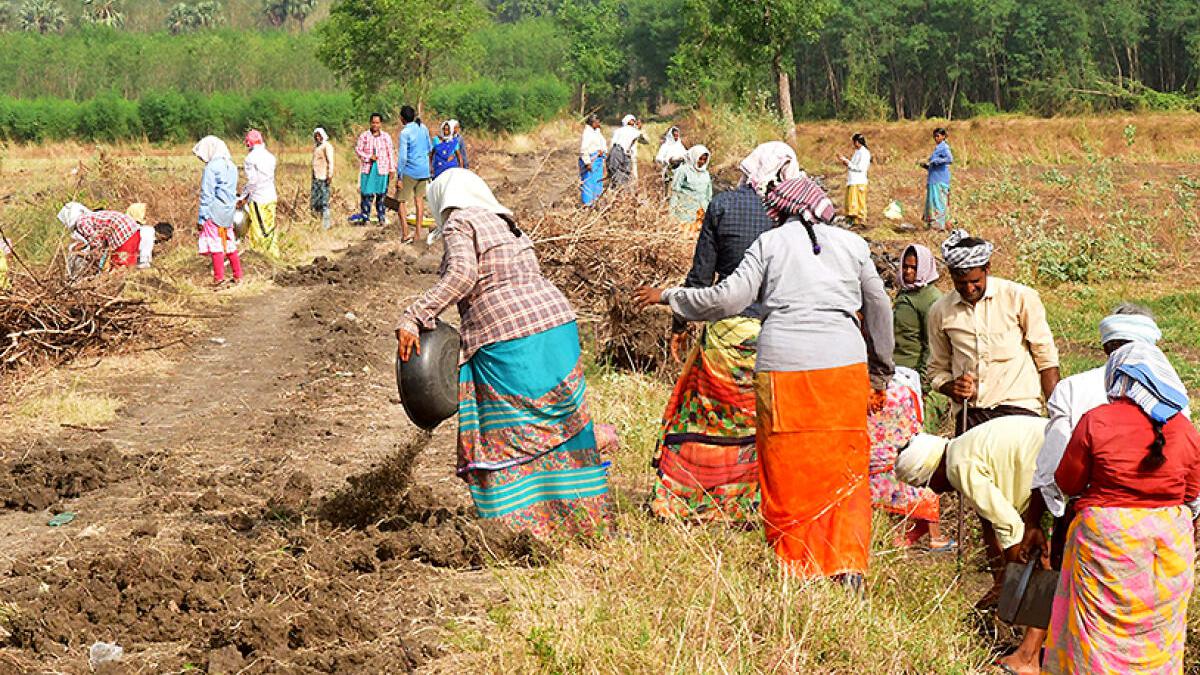Wage Issues Under MGNREGS

State and year-wise data regarding employment under the Mahatma Gandhi National Rural Employment Guarantee Scheme (Mahatma Gandhi NREGS) has been released, highlighting the scheme’s significant impact over the past five financial years. The Central Government has allocated a record ₹86,000 crore for the financial year 2024-25, ensuring continued support for rural employment. This allocation has been retained for the following year, showcasing the government’s commitment to addressing rural employment needs.
Overview of Mahatma Gandhi NREGS
The Mahatma Gandhi NREGS is a demand-driven wage employment initiative aimed at providing guaranteed work to rural households. The scheme operates on a continuous funding model, with the Central Government ensuring that funds are available to states and union territories based on the demand for work. This approach allows for flexibility and responsiveness to the employment needs of rural communities. Over the last five years, the scheme has consistently generated over 96% of Funds Transfer Orders (FTOs) within 15 days of the closure of muster rolls, demonstrating its efficiency in fund disbursement.
The wage payments under the Mahatma Gandhi NREGS are directly credited to beneficiaries’ accounts through the Direct Benefit Transfer (DBT) system. This method not only streamlines the payment process but also enhances transparency and accountability. The Ministry of Rural Development issues daily sanctions for wage payments via the Public Finance Management System (PFMS), ensuring that funds are allocated promptly and effectively.
Budget Allocations and Financial Management
For the financial year 2024-25, the budget allocation for the Mahatma Gandhi NREGS has reached an unprecedented ₹86,000 crore, marking the highest allocation since the scheme’s inception. The government has maintained this allocation for the subsequent financial year, reflecting its commitment to rural employment. The Ministry of Rural Development closely monitors employment demand at the grassroots level and seeks additional funding from the Ministry of Finance as necessary, ensuring that the scheme remains responsive to changing needs.
The government has also prioritized clearing any pending wage liabilities from previous years. As of the end of the financial year 2024-25, all outstanding wage liabilities have been addressed, ensuring that beneficiaries receive their due payments without delay. This proactive approach to financial management underscores the government’s dedication to supporting rural workers and enhancing their livelihoods.
Wage Rates and Adjustments
Under the Mahatma Gandhi NREGS, the wage rates for unskilled work are determined annually by the Central Government, as stipulated in the Mahatma Gandhi NREGA Act of 2005. The Ministry of Rural Development revises these rates each year based on changes in the Consumer Price Index for Agricultural Labour (CPI-AL), allowing for adjustments that reflect inflation and cost of living increases. The wage rate is effective from April 1 of each financial year.
In recent years, the wage rate has seen an average increase of approximately 5% from the previous year and around 29% over the last five years. Additionally, some state governments, including Jharkhand, Himachal Pradesh, and Odisha, have opted to provide a top-up to the wage rates set by the Central Government, further enhancing the earnings of local workers. This collaborative effort between the central and state governments aims to improve the financial well-being of rural laborers.
Government Oversight and Future Directions
The Mahatma Gandhi NREGS is characterized by its demand-driven nature, which necessitates ongoing monitoring and evaluation by the Ministry of Rural Development. The ministry actively assesses employment demand at the local level and adjusts funding requests accordingly. This dynamic approach ensures that the scheme can adapt to the evolving needs of rural communities.
The government remains committed to maintaining transparency and efficiency in the implementation of the Mahatma Gandhi NREGS. By leveraging technology and direct payment systems, the scheme aims to empower rural workers and provide them with reliable income sources. As the government continues to prioritize rural employment, the Mahatma Gandhi NREGS stands as a vital tool for economic development and social welfare in India’s rural landscape.
Observer Voice is the one stop site for National, International news, Sports, Editor’s Choice, Art/culture contents, Quotes and much more. We also cover historical contents. Historical contents includes World History, Indian History, and what happened today. The website also covers Entertainment across the India and World.
Follow Us on Twitter, Instagram, Facebook, & LinkedIn

